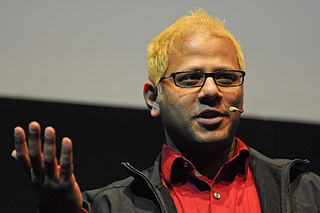A Quote by Trevor Paglen
I think mass surveillance is a bad idea because a surveillance society is one in which people understand that they are constantly monitored.
Quote Topics
Related Quotes
No matter the specific techniques involved, historically mass surveillance has had several constant attributes. Initially, it is always the country’s dissidents and marginalized who bear the brunt of the surveillance, leading those who support the government or are merely apathetic to mistakenly believe they are immune. And history shows that the mere existence of a mass surveillance apparatus, regardless of how it is used, is in itself sufficient to stifle dissent. A citizenry that is aware of always being watched quickly becomes a compliant and fearful one.
Someone recently talked about mass surveillance and the NSA revelations as being the atomic moment for computer scientists. The atomic bomb was the moral moment for physicists. Mass surveillance is the same moment for computer scientists, when they realize that the things they produce can be used to harm a tremendous number of people.
When we have some horrible terrorist attacks happen in some country we see in the recording that follows, that the intelligence community already knew about these people in advance. We know that these countries were involved in intelligence sharing premiums, that they benefited from mass surveillance, and yet they didn't stop the attacks. Yet at the same time we immediately see intelligence officials running to the newspapers and claiming that we need more surveillance, that we need more intrusion, that we need more expense of powers because it could have stopped an attack.

































